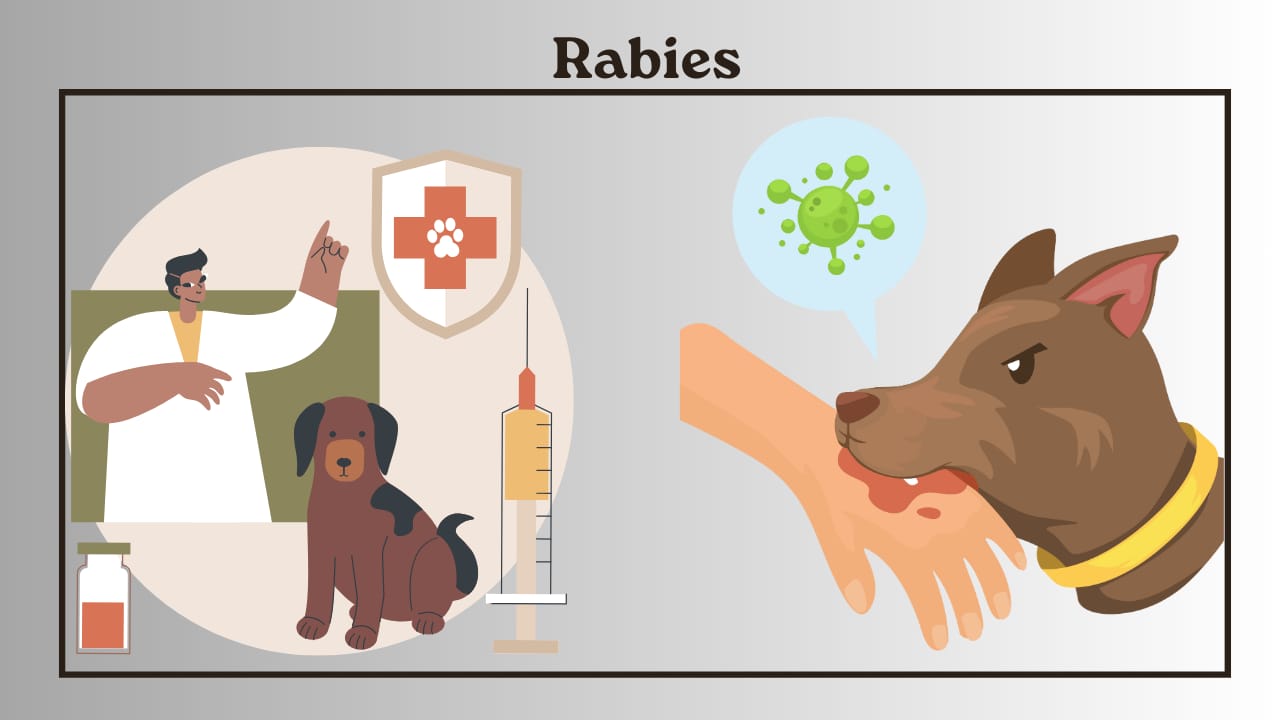Rabies is a Viral Disease Caused by the rabies virus
Rabies virus is the cause of the viral disease called rabies through bites or scratches. This disease is spread by the saliva of infected animals which affects both humans and animals. The following are some essential rabies facts:
Symptoms and Effects
Rabies virus is extremely dangerous. The central nervous system (the brain and spinal cord) gets the inflammation when the rabies virus enters the body. The earliest symptoms can be similar to the flu and can also include fever, headache, and weakness but when the disease becomes more severe, anxiety, confusion, difficulty in swallowing, and muscle spasms may appear. At last, paralysis and coma can happen, which can also lead to death.
Stages of Rabies
While the progression of rabies can vary, it is typically described in three stages:
- Prodromal Stage: In the beginning, the general symptoms can include a fever, headache, and exhaustion start to appear at this stage. The area of the bite may also pain, or trigger itching, or a tingling sensation.
- Acute Neurologic Stage: At this stage, the virus affects the central nervous system and causes more harmful symptoms such as confusion, agitation, paralysis, and difficulty swallowing.
- Coma and Death: At the final stage, the victim frequently reaches a coma stage and gets respiratory failure, leading to death.
Lack of Cure
Once symptoms of rabies begin to appear, it is completely believed to be life-threatening. This is because the immune system and medication fail to treat the virus once it has entered the central nervous system. By the time symptoms appear, it is typically too late for treatment as the virus causes damage to the brain and spinal cord.
Preventative Measures
Rabies cannot be cured once symptoms start to appear, but it can be prevented if the right steps are taken immediately after exposure. Post-exposure prophylaxis (PEP), a series of rabies vaccinations, and, in some situations, rabies immune globulin are involved in this. Within a few days of exposure to a potentially rabid animal, PEP can be quite effective if given before the virus enters the central nervous system.
Vaccination
Pre-exposure vaccination is advised for people who are at a high risk of exposure to rabies, such as veterinarians, lab employees, and people who travel to areas where rabies is more common. These vaccinations also protect by helping the immune system to respond more effectively if gets exposed to the virus.
If you are bitten or scratched by an animal that is believed to be rabid, you need to get medical help right away and take the proper post-exposure measures. Although rabies is a harmful and potentially fatal disease, it can be prevented among individuals with immediate medical attention.











